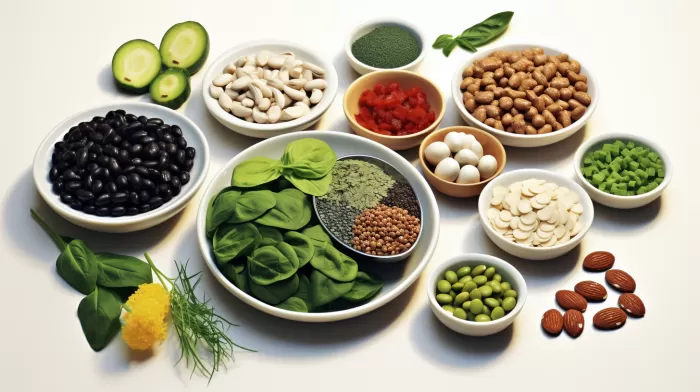An incredible fact: women who eat foods rich in one specific mineral are 30 to 40 percent less likely to develop pre-menstrual syndrome (PMS). Researchers in Massachusetts have discovered the amazing power of iron in fighting the hormonal ups and downs of PMS. By eating meals rich in iron, women can significantly reduce their risk of the monthly discomfort.
Scientists at the University of Massachusetts Amherst School of Public Health and Health Sciences and Harvard have found that it is the non-heme iron, usually accessible through plant-based foods and supplements, that offers the greatest PMS-fighting power. According to researcher Elizabeth Bertone-Johnson, “Women who consumed the most non-heme iron had a 30 to 40 percent lower risk of developing PMS than women who consumed the lowest amount of non-heme iron.”
Non-Heme Iron: The Plant-Based PMS Fighter
So, what is non-heme iron and why is it so effective in helping women reduce their risk of PMS? Non-heme iron is a type of iron found in plant foods and some supplements. It differs from heme iron, which comes from animal-based sources. Apart from their origins, another key difference between non-heme and heme iron is their rate of absorption. Non-heme iron is not as easily absorbed by the body compared to heme iron, but this can be improved with the intake of certain vitamins and minerals.
Some vegetarian foods rich in non-heme iron include pumpkin seeds, quinoa, spirulina, spinach, tomato sauce, prunes, white beans, and lentils. By incorporating these iron-rich foods into their diets, women can reduce their risk of PMS dramatically. Not only are these powerhouses great sources of non-heme iron, but they also provide a wide range of other nutrients that contribute to overall health and well-being.
The Mineral Mix: Iron, Zinc, Potassium, and PMS
When the researchers expanded their study to investigate the roles of other minerals, they found mixed results. There was an indication that high intake of zinc might be associated with a lower risk of developing PMS. However, they were surprised to find that women consuming the highest amount of potassium had a higher risk of being diagnosed with PMS than women consuming the lowest amount of potassium. This goes to show that, while potassium is essential for many bodily functions, it might be a double-edged sword when it comes to PMS.
The researchers also discovered that the intake of other minerals, including magnesium, copper, sodium, and manganese, was not associated with PMS risk. This highlights the unique role that iron, and particularly non-heme iron, plays in the battle against PMS.
The Importance of Proper Iron Intake
While iron’s role in PMS prevention is significant, adequate iron intake is necessary for overall health. Iron is essential for the production of hemoglobin, a protein that helps red blood cells transport oxygen throughout the body. It is also involved in the production of collagen, the most abundant protein in the body, and it plays a role in energy production and immune function.
Low iron levels can lead to anemia, which causes fatigue, weakness, and shortness of breath. On the other hand, excessive iron intake can lead to a condition called iron overload, which can damage various organs and cause serious health issues.
It is important for women to consume the right amount of iron to maintain good health while also reducing PMS risk. The recommended dietary allowance for women aged 19 to 50 is 18 milligrams per day. Food sources are the best way to reach this daily requirement, but supplements can also be helpful for those who have difficulty getting enough from their diet. It is important to consult a healthcare professional before starting any iron supplements, as they can interact with other medications and potentially cause harm if taken in excessive amounts.
Incorporating Iron-Rich Foods into a Balanced Diet
To fully harness the PMS-fighting power of iron, it’s important to incorporate iron-rich foods into a balanced, healthy diet. Eating a wide variety of fruits, vegetables, whole grains, and proteins will ensure that your body has all the nutrients it requires, including adequate levels of non-heme iron.
By experimenting with different iron-rich foods, you can reap not only the benefits of hormonal stability but also the overall health advantages of a nutrient-rich diet. With the help of iron, it’s possible to reduce PMS symptoms and achieve a more balanced and comfortable monthly cycle.



